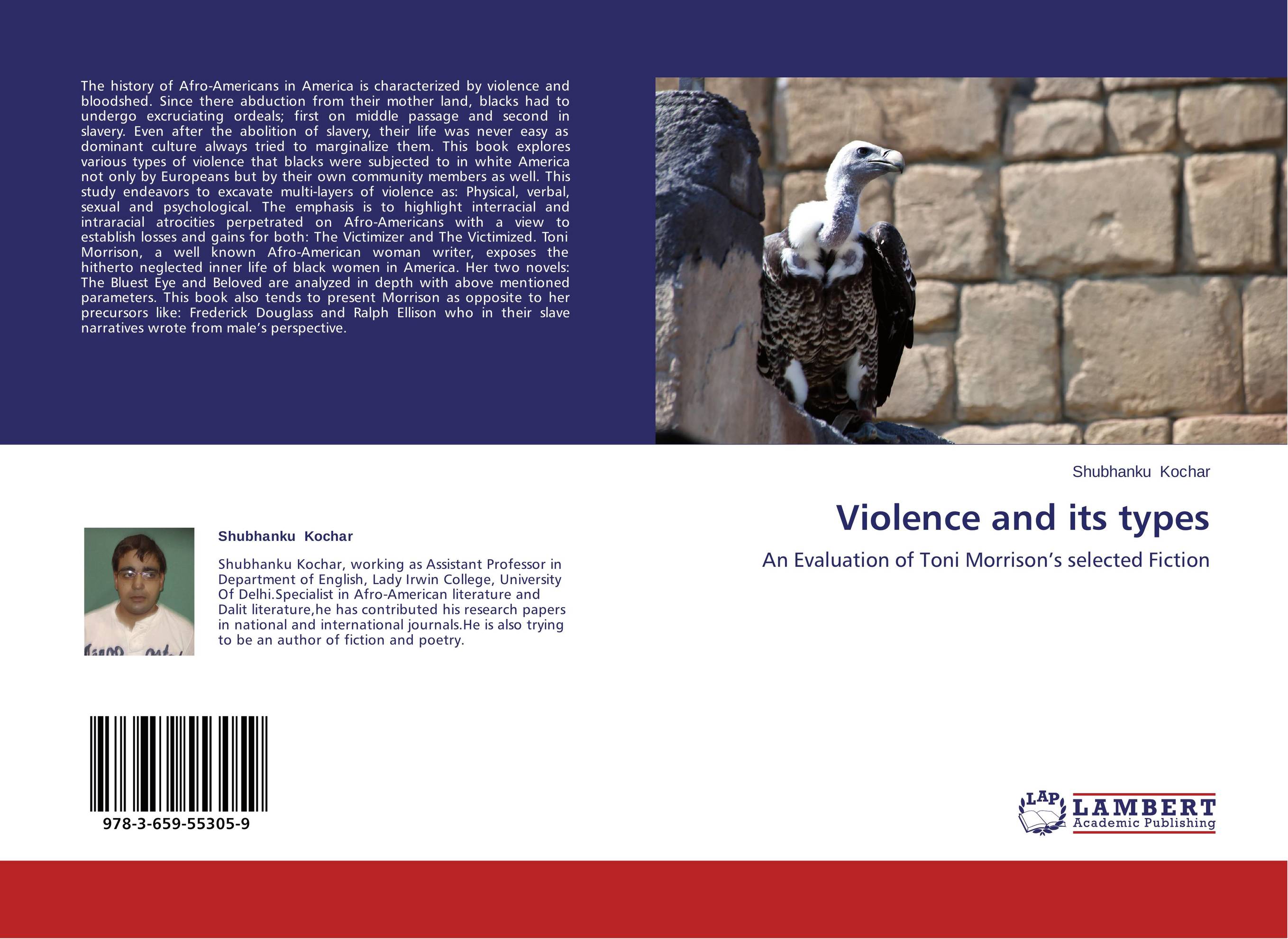| Поиск по каталогу |
|
(строгое соответствие)
|
- Профессиональная
- Научно-популярная
- Художественная
- Публицистика
- Детская
- Искусство
- Хобби, семья, дом
- Спорт
- Путеводители
- Блокноты, тетради, открытки
Violence and its types. An Evaluation of Toni Morrison’s selected Fiction

В наличии
| Местонахождение: Алматы | Состояние экземпляра: новый |

Бумажная
версия
версия
Автор: Shubhanku Kochar
ISBN: 9783659553059
Год издания: 2014
Формат книги: 60×90/16 (145×215 мм)
Количество страниц: 92
Издательство: LAP LAMBERT Academic Publishing
Цена: 29185 тг
Положить в корзину
| Способы доставки в город Алматы * комплектация (срок до отгрузки) не более 2 рабочих дней |
| Самовывоз из города Алматы (пункты самовывоза партнёра CDEK) |
| Курьерская доставка CDEK из города Москва |
| Доставка Почтой России из города Москва |
Аннотация: The history of Afro-Americans in America is characterized by violence and bloodshed. Since there abduction from their mother land, blacks had to undergo excruciating ordeals; first on middle passage and second in slavery. Even after the abolition of slavery, their life was never easy as dominant culture always tried to marginalize them. This book explores various types of violence that blacks were subjected to in white America not only by Europeans but by their own community members as well. This study endeavors to excavate multi-layers of violence as: Physical, verbal, sexual and psychological. The emphasis is to highlight interracial and intraracial atrocities perpetrated on Afro-Americans with a view to establish losses and gains for both: The Victimizer and The Victimized. Toni Morrison, a well known Afro-American woman writer, exposes the hitherto neglected inner life of black women in America. Her two novels: The Bluest Eye and Beloved are analyzed in depth with above mentioned parameters. This book also tends to present Morrison as opposite to her precursors like: Frederick Douglass and Ralph Ellison who in their slave narratives wrote from male’s perspective.
Ключевые слова: Gender, violence, feminism, conflict, Racism, Post-colonial, identity crisis, Social Injustice, Black versus White, Afro-American trauma



